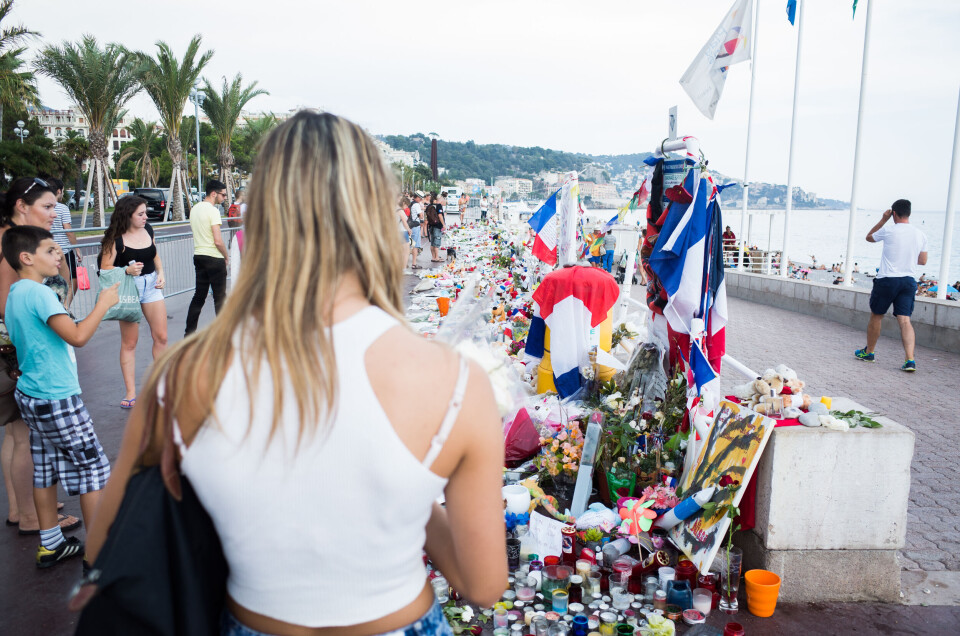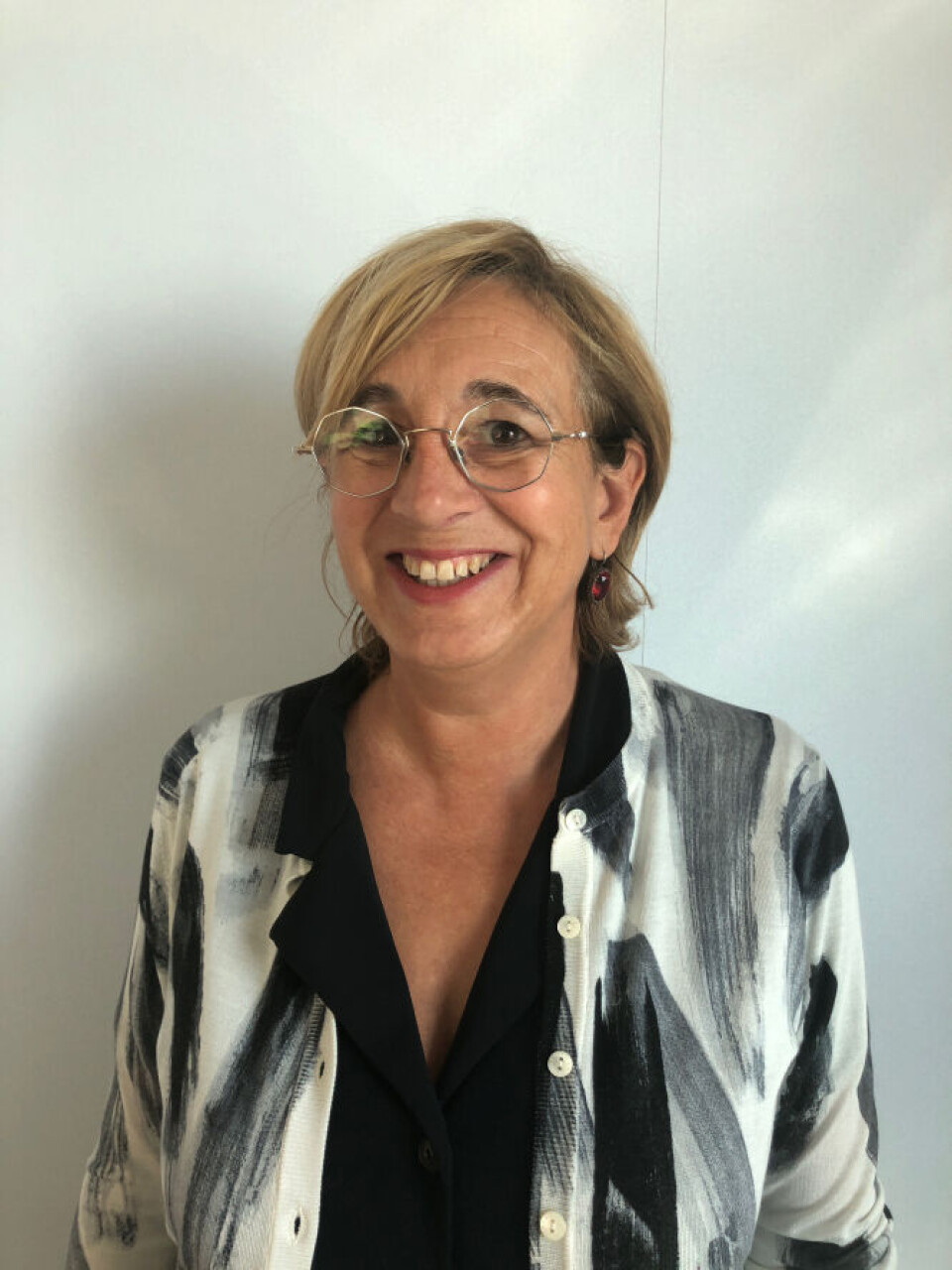-
Which fruits, vegetables and fish are in season in France this April?
Strawberry season begins, compensating for end of winter vegetables
-
Why are drivers in France increasingly getting speeding fines without being ‘flashed’?
Here is why you may have received an unexpected fine in the post
-
Marine Le Pen appeal decision should be given in summer 2026, says court
It comes as the RN leader continues to maintain her ‘innocence’ and right-wing politicians have called her conviction ‘an attack on democracy’
Study reveals lasting impact of Nice terror attack on children present
Preliminary results on the effects of the 2016 July 14 attack suggest Post-Traumatic Stress Order can affect all ages. Children born of mothers pregnant at the time were included

Two thirds of children and adolescents exposed to the July 14 terror attack in Nice had Post-Traumatic Stress Order (PTSD) when they came to see doctors, according to the preliminary results of an ongoing study.
86 people were killed as a terrorist drove a truck through crowds celebrating France’s national holiday in 2016, including 15 children. To this day, those who survived are still trying to rebuild their lives.
Faced with the scale of the trauma, the Lenval Children's University Hospital in Nice created the Centre d'Évaluation Pédiatrique du Psychotraumatisme (CE2P), known as the Centre Simone Veil, the only facility in France dedicated to treating psychological trauma in children and adolescents.
By last summer, the centre had seen almost 700 patients for 7,889 consultations in relation to the attack, or the stabbing at Notre-Dame church in Nice on October 29, 2020.
As part of the ‘14-7’ study, the centre has been closely following 271 patients divided into three age groups: 0-6, 7-12, and 13-18.
While the study will continue until the youngest participants turn 25, the preliminary results were recently published in JAMA Network Open, an open-access journal from the American Medical Association.
They suggest there is no link between age and PTSD frequency with the youngest patients just as likely to suffer as older adolescents.

Overall, 167 patients (62%) had PTSD when they first came to the centre, including 57% of those aged 0-6.
Furthermore, 79% had anxiety disorders, including specific phobia (56%), separation anxiety (29%), social anxiety (6%) and obsessive-compulsive disorder (1%).
89 of the patients studied (33%) had attention deficit disorder (ADD) or attention deficit hyperactivity disorder (ADHD), while 23 (9%) had major depressive disorder, and 48 (18%) had impulse control disorders.
“A significant association of age was observed for the diagnoses of anxiety disorders,” the study notes. Teenagers were less likely to have anxiety disorders (66%).
Read more: Trauma remains for children of July 14 terror attack in Nice
All the patients included were exposed to the attack. For most, this means they were present on the Promenade des Anglais when it happened, but the study also includes direct and indirect victims and witnesses (through close friends or family members), and, in some cases, children whose mothers were pregnant with them at the time.
While many children are now doing much better, there are many others who continue to require specialised care more than six years on, the Centre Simone Veil’s Dr Florence Askenazy, who is leading the study, told The Connexion.
“There are children who have difficulty going to school and concentrating, having social relationships with their classmates,” she said.
“One of the symptoms is to avoid being in situations or the place where it happened, which can include school since there are things which will remind them of this tragedy. There are many children who no longer want to go outside.”
Each victim experienced the event in a different way and the symptoms themselves are very personal.

“We have quite a few teenagers who come to us either with flashbacks, or trouble sleeping, and sadness. There are also more profound questions around relationships to adults and institutions.”
Although the attacker was shot dead at the scene, the trial of eight people suspected of helping him took place in Paris between September and November 2022. All eight were sentenced to between two and 18 years in prison.
Dr Askenazy said this increased spotlight had an effect on young victims. “Clinical observations show that we have clearly had far more requests related to relapses in various forms.”
Also included in the study are approximately ten victims who were not yet born at the time of the attack, but were in the womb, and their mothers were present, meaning the youngest patients today are six years old.
“We know that maternal stress has an impact on foetal development.”
Much more research is needed on this topic, but American studies following 9/11 suggest that pregnant survivors who suffered from PTSD were more likely to have children who develop PTSD themselves. Both mothers and children were found to have lower levels of the stress hormone cortisol than those who did not develop PTSD.
“We also know that when parents are impacted and have problems following a severe traumatic event, the parent-child relationship is affected, and therefore so is the development of the child,” Dr Askenazy said.
“A baby develops thanks to its relationship with others, with a parent or a parental substitute. These interactions are very important for its affective and cognitive development.
“If one of the parents is suffering from difficulties in the first stage of life, this relationship will be hindered.”
This is one of the reasons staff at the Centre Simone Veil also offer support and treatment to parents.
“We cannot help a child if we do not help the parents.”
Related articles
Foreign children among those ‘adopted’ by French state
November 13 Paris attacks trial: Life sentence but not for 130 deaths
Career change in France: Paris attack made me reflect on what I wanted
























